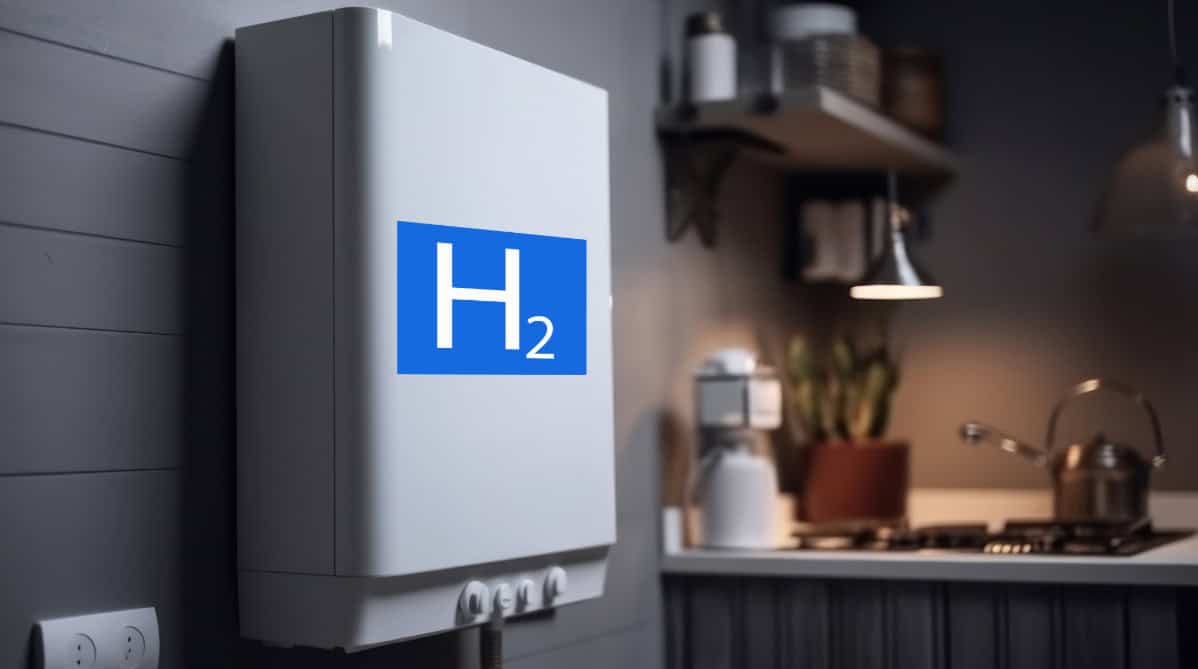As the world seeks sustainable solutions to combat climate change, hydrogen has emerged as a promising contender in the race towards a greener future. From transportation to heating systems, the potential applications of hydrogen are vast and varied. But is hydrogen likely to replace natural gas boilers in our rental property industry?
Join us as we delve into the world of technology to explore the potential use of hydrogen in the UK, and the pros and cons of the use of hydrogen boilers for domestic heating systems.
Exploring the potential of hydrogen boilers in the UK
Hydrogen boiler technology has the potential to revolutionise the way we heat homes and businesses, offering a sustainable alternative to traditional fossil fuel-based systems. While hydrogen gas boilers are still in the early stages of development, the UK government and the Energy and Utilities Alliance (EUA) expect them to play a crucial role in the effort to combat climate change.
The UK has set a target to phase out natural gas boilers by 2035, with hydrogen boilers being a key component of this transition. In August 2021, the government introduced a strategy to achieve five gigawatts of low-carbon hydrogen production by 2030 – that’s equivalent to the amount of gas consumed by over 3 million households in the UK each year. Key to this strategy is mixing hydrogen with natural gas, within the existing gas network infrastructure – this is referred to as hydrogen blending.
So, will hydrogen eventually replace natural gas in our homes and rental properties entirely?
Understanding hydrogen boilers
As you might expect, hydrogen boilers use hydrogen gas as their primary fuel source. The by-product is water vapour, so there are no carbon emissions. This makes them an environmentally friendly option compared to conventional fossil fuels like oil and gas. They operate in a similar way to natural gas boilers, generating hot flue gases to heat water for various purposes.
Types of hydrogen boilers
Fully hydrogen boilers are not yet on the market, so there are currently two main types of hydrogen boilers: hydrogen blend-ready boilers and hydrogen-ready boilers.
Hydrogen blend-ready boilers can operate on a blend of hydrogen and natural gas, typically up to 20% hydrogen to 80% natural gas. In case you didn’t already know, all boilers installed in the UK after 1996 are already hydrogen-blend ready.
The second type of boiler, hydrogen-ready boilers, can run on natural gas and then be converted over to run fully on hydrogen.
Production of hydrogen
We don’t want to get all technical here, so we can summarise hydrogen production into two methods.
The first is electrolysis, which uses electricity to split water into hydrogen and oxygen. The second is steam-methane reforming (SMR), an established commercial process involving a chemical reaction that uses high-temperature steam to produce hydrogen from methane. The UK government plans to support both technologies to achieve its net zero target by 2050.
Advantages and disadvantages of hydrogen boilers
There is ongoing debate around hydrogen’s place in decarbonisation, with both pros and cons put forward for the use of hydrogen in place of natural gas and oil.
Let’s take a look at these:
Hydrogen boilers – the pros
- Around 18% of the UK’s carbon emissions come from heating our homes – by using hydrogen instead of natural gas and oil, around a fifth of our emissions would be cut.
- Hydrogen could use the existing natural gas infrastructure, which is already connected to 85% of the 30 million homes in the UK – speeding up the transition to net zero.
- Electricity produced by renewable methods can be used to create hydrogen.
- Hydrogen boilers are suitable for a wide range of properties, including traditional tenement buildings which are less suitable for alternative heating systems like heat pumps.
- Hydrogen won’t run out, unlike natural gas and oil.
- Hydrogen is non-toxic in comparison to natural gas and dissipates quickly when released into the air.
Hydrogen boilers – the cons
- 100% hydrogen boilers are still being developed, and aren’t available yet to buy
- There’s no full understanding of the costs involved in creating, storing, and transporting hydrogen, and the existing gas infrastructure is already in need of renewal.
- Hydrogen requires more energy than traditional boilers to produce the same temperature, and uses more electricity than heat pumps.
- Hydrogen boilers may be more expensive than natural gas and oil boilers and are expected to cost more than heat pumps.
- Hydrogen is flammable and more explosive range than natural gas, so there are safety concerns to address before it can be stored and transported widely.
- Expensive to produce.
So, are hydrogen boilers likely to replace natural gas boilers in Scottish rental properties?
Significant progress towards fully-hydrogen heating networks is being made, with research projects across the UK and beyond. UK government policy also considers a range of technologies to achieve net zero, including heat pumps and heat networks alongside hydrogen boilers. We expect a strategic decision on the future of hydrogen boilers for domestic heating to be made in 2026.
Further research is needed before we could say for certain that all our homes and rental properties are likely to switch to fully-hydrogen boilers in the future – but what is clear, is that hydrogen boilers offer considerable opportunities to take us closer towards net zero carbon emissions.
If you need to find out more about the boiler options appropriate for your properties then your local plumbing and heating company will be happy to help – and if a hydrogen-ready boiler is the best option, there are already several on the market, at a range of price points.
In the meantime, watch this space!












